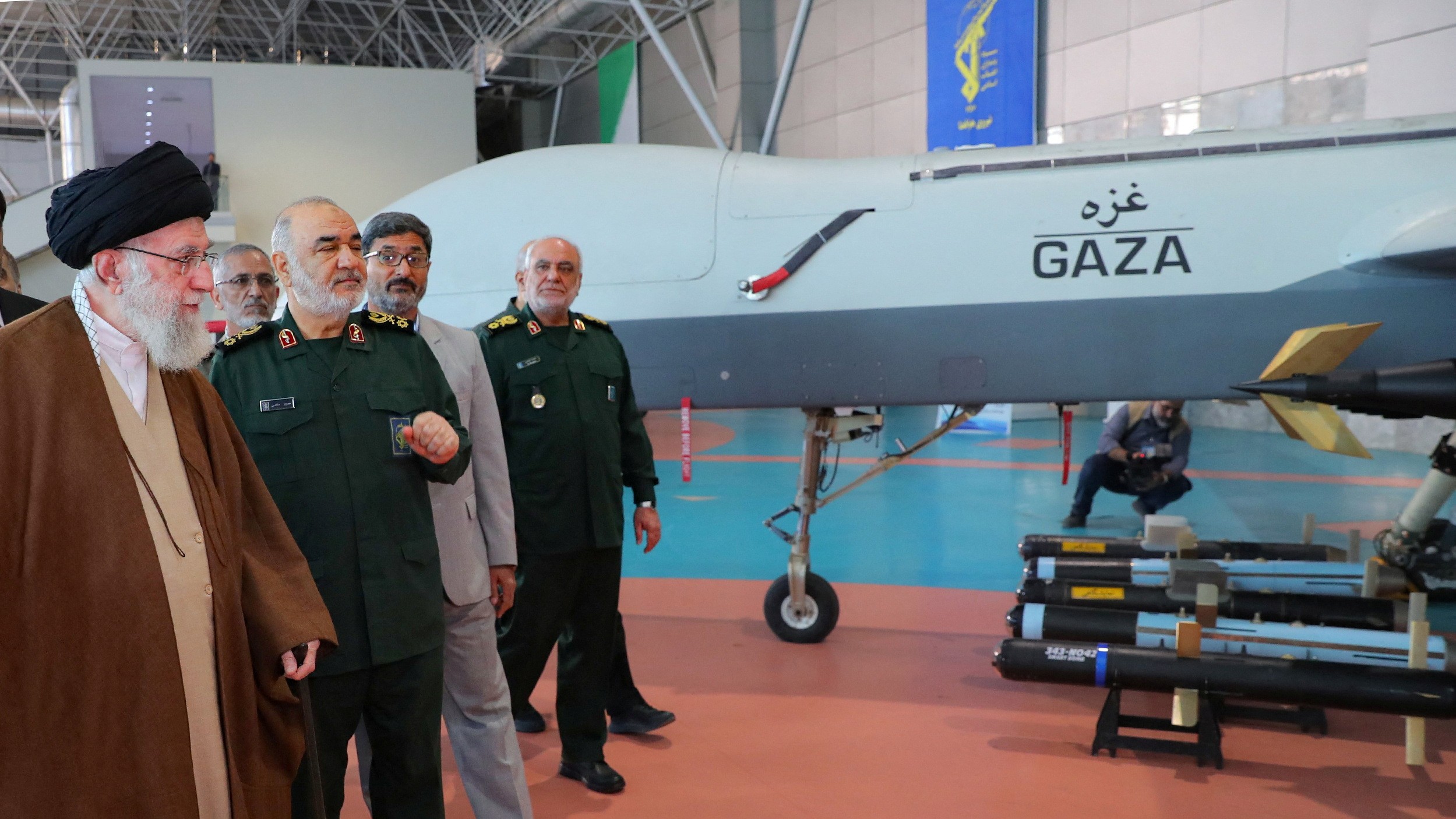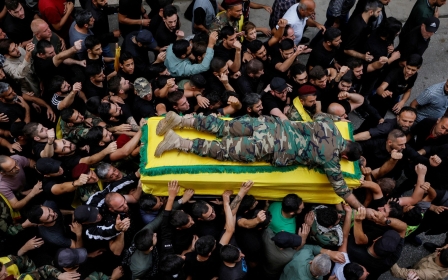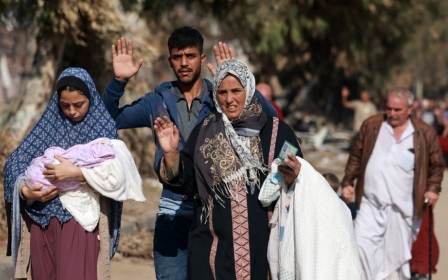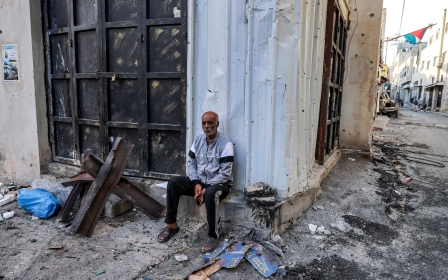Israel-Palestine war: Allegations of pro-war lobbying crack open Iranian divides on Gaza
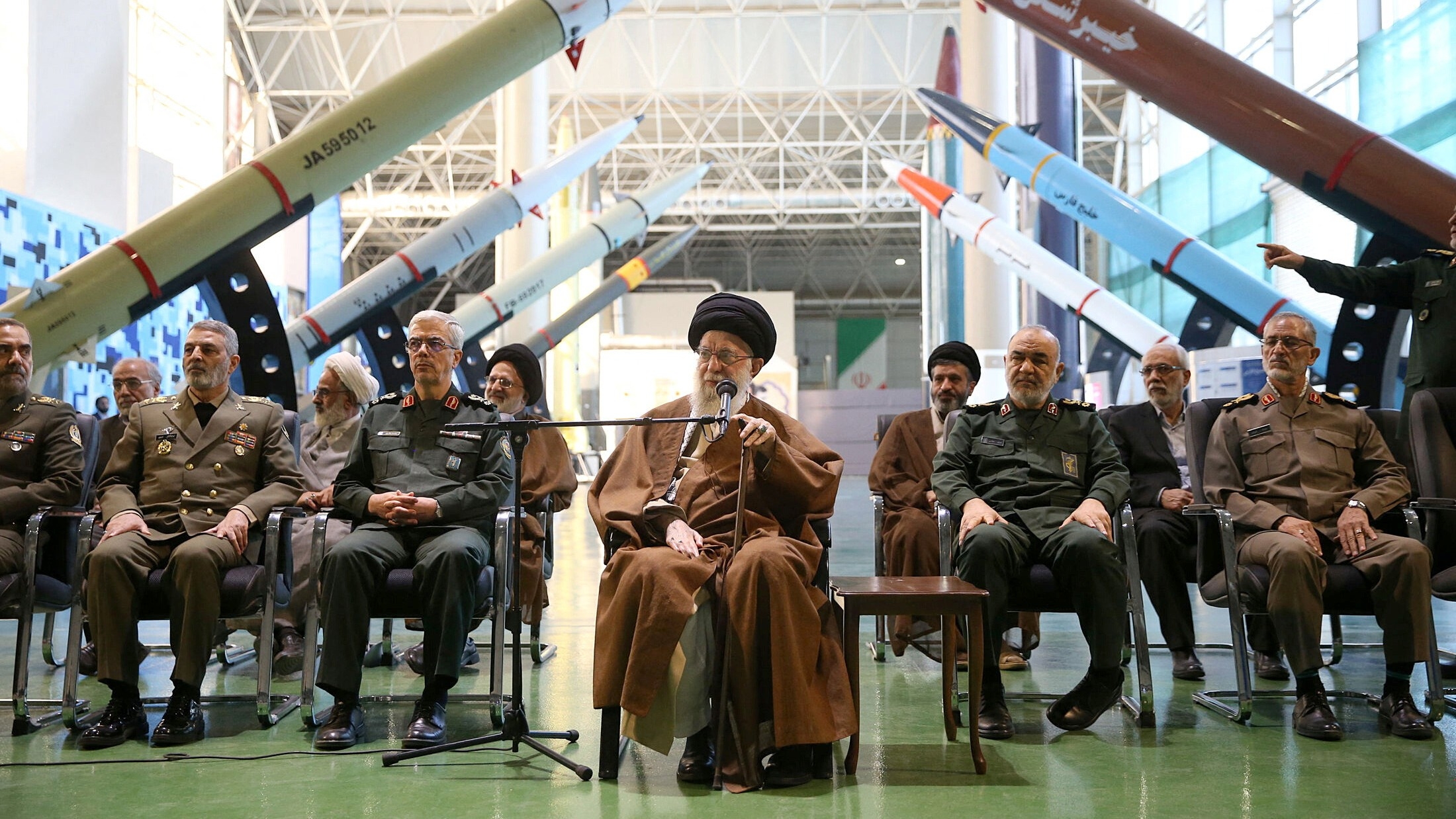
Allegations made by Iran’s former foreign minister that Supreme Leader Ali Khamenei was being lobbied by ultra-conservatives for greater intervention into the Israel-Palestine war have caused a scandal and stoked debate over what role Tehran should be taking.
Mohammad Javad Zarif, who was foreign minister in the previous moderate administration that inked the 2015 nuclear deal with western powers, made the remarks on 11 November at a conference, where he emphasised Iran’s constitutional duty to support the oppressed without resorting to direct military action.
Zarif said he believed Iranians are “tired of paying the price” of the Iranian government’s confrontational approach to Israel and its occupation of Palestinian lands.
He cautioned against needlessly escalating tensions, urging a balanced approach to policymaking.
Since a 7 October Hamas-led attack on Israeli communities near the Gaza Strip, which killed around 1,200 Israelis, Israel has waged a bombing and land campaign on the Palestinian enclave that has killed more than 13,000 Palestinians.
When launching the attack, Hamas’ military chief Mohammed al-Deif called on his allies in the Axis of Resistance, an Iran-led, anti-Israel coalition of states and armed groups, to fight the Israelis alongside the Palestinian movement.
Several groups have responded in various ways. Clashes quickly broke out between Hezbollah and Israel along the Lebanese border, and are ongoing today. Paramilitaries in Iraq and Syria have repeatedly targeted US bases and occasionally fired missiles at Israel.
In Yemen, the Houthi movement has launched missile and drone attacks on Israel, and over the weekend apprehended a ship in the Red Sea it says is Israeli-owned and crewed.
Iran said it had no forewarning of Hamas’ attack. It insists that its allies act of their own accord, and has not made any direct interventions itself.
But according to Zarif, a group of principlists, also known as hardliners, have written to Khamenei urging Iran to enter the war.
Follow Middle East Eye's live coverage for the latest on the Israel-Palestine war
Referring to Tehran’s current policy of non-involvement in Gaza, Zarif said: “Now that the country has adopted a wise policy, let's not embolden extremism.”
A former conservative official, speaking anonymously, told Middle East Eye that there are three things that explain and illustrate Iran’s policy on Gaza.
“First, Ayatollah Khamenei’s public declaration that Tehran wasn’t aware of Hamas' 7 October attack,” he said.
“Then, observe the Republican Guard commanders, who have mostly remained silent, despite usually boasting about their readiness for war against Zionists,” he added.
“Thirdly, consider Iran’s government and diplomatic team repeatedly stating that the Axis of Resistance's attacks on US and Israeli targets have no ties with Tehran.”
Anger and consensus
Zarif’s interpretation of Iranian policy and his allegations that Khamenei was being lobbied to intervene in the war have drawn the ire of principlist politicians.
Mohammad Jamshidi, an aide of President Ebrahim Raisi, said Zarif had failed to understand “the country’s power” despite being given military briefings while in office.
“America repeatedly asks Iran not to take action, but [he] portrays Iran in a weak position,” Jamshidi said, accusing Zarif of being a coward.
Influential preacher and longtime Zarif critic Alireza Panahian responded by advocating for a proactive approach to the conflict, citing religious narratives to justify preemptive actions.
Yet there are signs that generally the Islamic Republic’s leadership is on the same page as Zarif, or at least content to have its allies ratchet up the tension for now.
Gholam-Ali Haddad-Adal, the father-in-law of Khamenei’s son and an influential fundamentalist figure, has said that entering a full-scale war may be exactly what Israel wants.
“It means turning the battle of Gaza into a war between Iran and America. If this happens, maybe Israel will survive, because it has been provoking the US to go to war with Iran for years,” he said.
“It is not clear from a strategic point of view that the entry of Iran will benefit the cause of Palestine."
'It is not clear from a strategic point of view that the entry of Iran [into the Gaza conflict] will benefit the cause of Palestine'
- Gholam-Ali Haddad-Adal, influential fundamentalist
According to a Reuters report last week, Khamenei told Hamas political leader Ismail Haniyeh that Iran would continue to lend the group its political and moral support, but wouldn't intervene directly.
The supreme leader reportedly chastised Haniyeh for not forewarning of the attack on Israel.
A source in the Iranian government confirmed the report to some extent, saying neither the Revolutionary Guard nor Khamenei had any prior knowledge of the Hamas-led attack. Even Haniyeh was unaware, the source said.
According to the source, Iran was not ready for the attack or its fallout and never expected this to happen.
The source noted that the next stage of a recently brokered agreement between Tehran and Washington was supposed to be implemented. The first stage of the Iranian-US agreement was the freeing of five US citizens from prison in return for billions of Iranian assets being unfrozen.
The governmental source didn’t elaborate on the nature of the second phase of the agreement.
“Some important Arab countries, along with Qatar, are passing messages between Iran and the US, working like a hotline to prevent miscalculation and escalation of tensions.”
Foreign minister under pressure
Despite Iran’s current strategy seeming to come from the very top, principlists unhappy with the approach are seeking to oust the foreign minister, Hossein Amir-Abdollahian.
They are accusing Iran’s diplomatic team of inaction, especially in comparison to the Saudis, who earlier this month gathered Arab and Islamic countries for a summit on Gaza.
Mahmoud Abbaszadeh Meshkini, a principlist member of the parliament's foreign policy commission, criticised the foreign minister, asking: "How is it that until a while ago there was talk of the elimination of the Zionist regime, but now the discourses have changed?"
However, a former MP told MEE that they did not think it was possible to axe Amir-Abdollahian.
“Such issues, especially against the foreign minister, need the approval of the leader, therefore this action against Amir-Abdollahian won't lead anywhere,” the former MP said.
“While we are at the centre of a conflict in the Middle East, it is very unlikely that the leader allows such a move. This is also while Amir-Abdollahian is exactly following the orders of the leadership regarding the Gaza conflict.”
Middle East Eye propose une couverture et une analyse indépendantes et incomparables du Moyen-Orient, de l’Afrique du Nord et d’autres régions du monde. Pour en savoir plus sur la reprise de ce contenu et les frais qui s’appliquent, veuillez remplir ce formulaire [en anglais]. Pour en savoir plus sur MEE, cliquez ici [en anglais].


